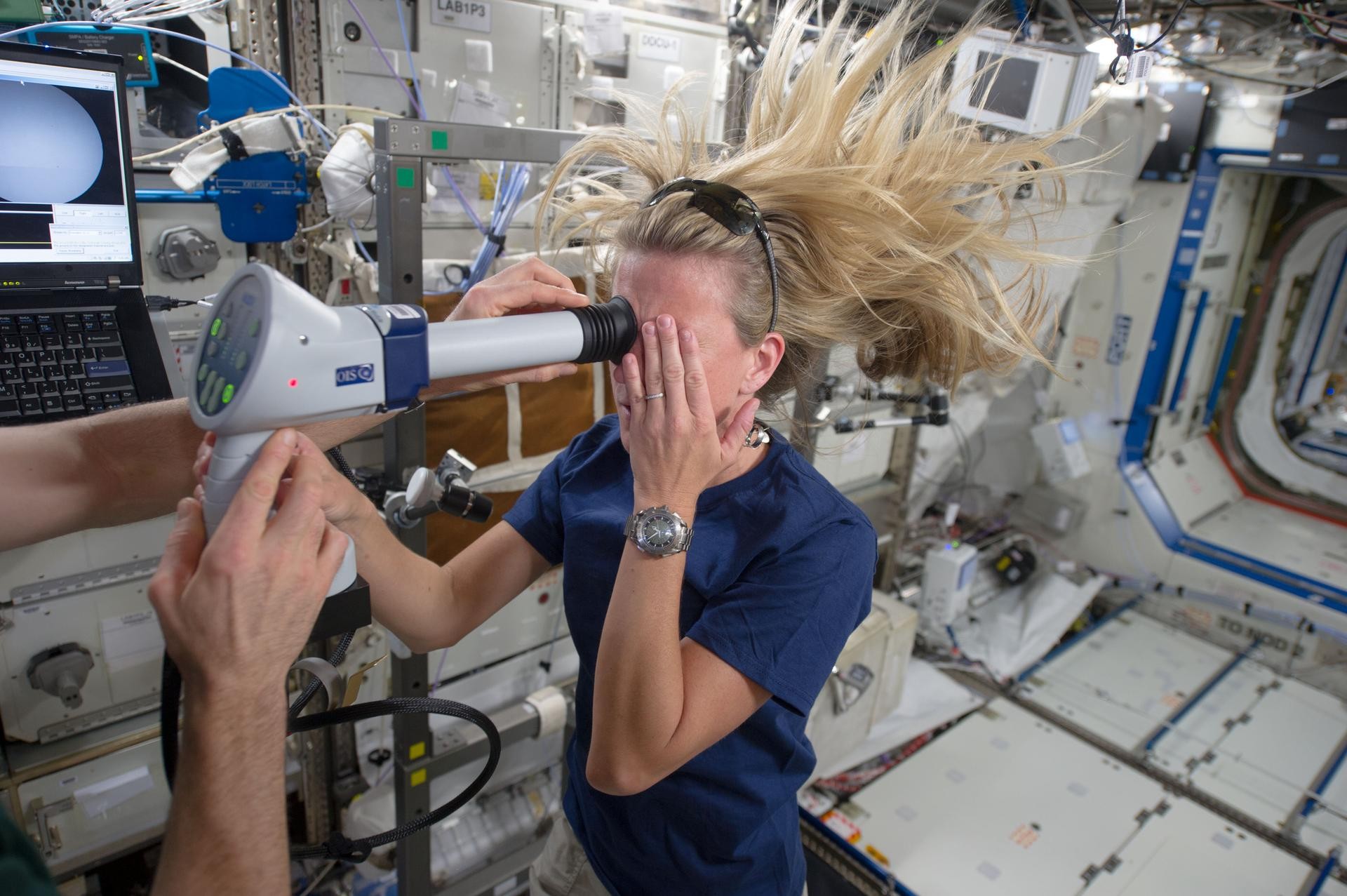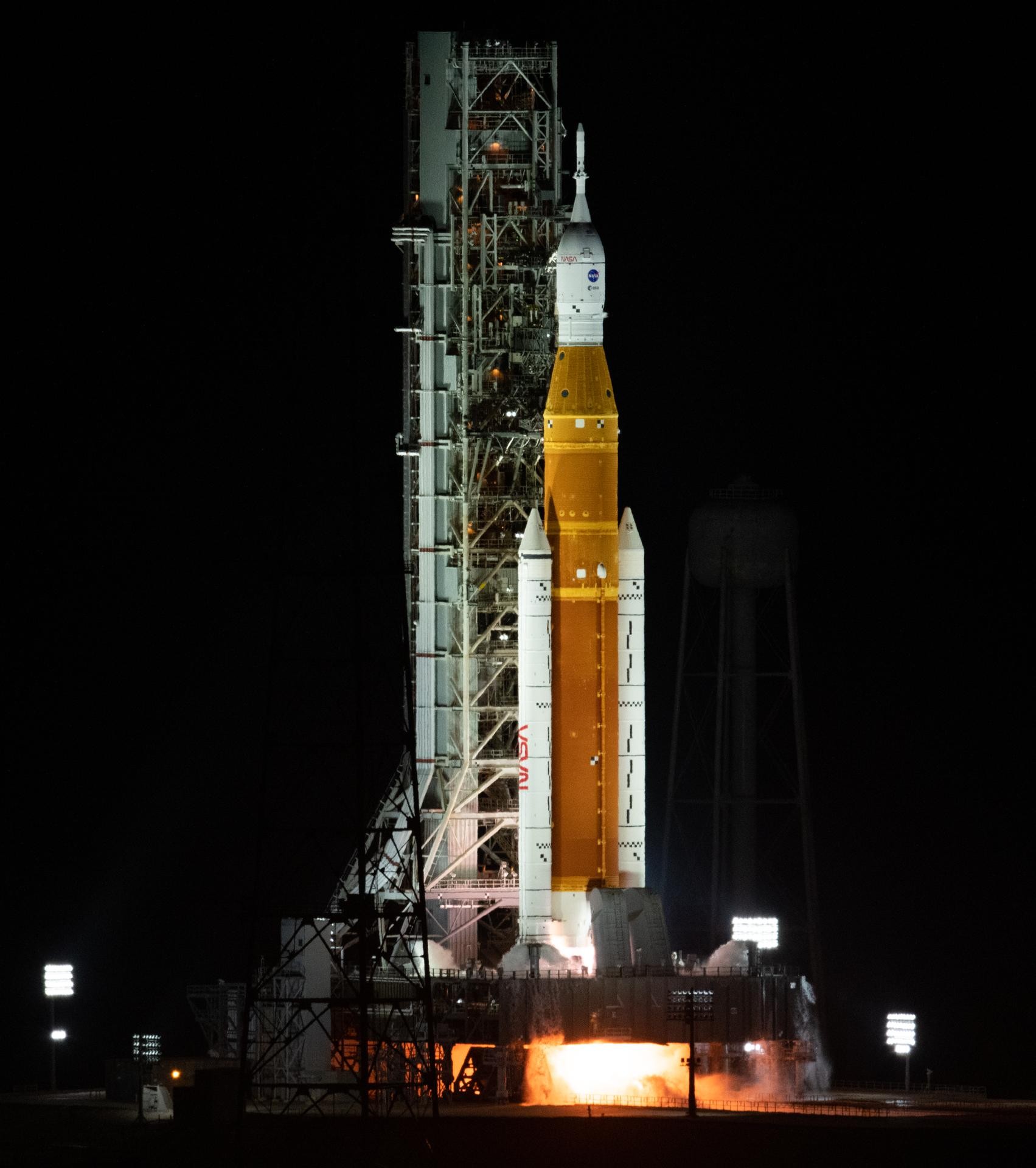Is Space Travel Worth It? This question sparks debate, yet TRAVELS.EDU.VN believes the exploration of space yields invaluable benefits for humanity, including scientific advancements, technological innovation, and a renewed perspective on our place in the universe. By addressing the challenges and highlighting the potential rewards of cosmic journeys, we aim to show why venturing beyond Earth is a worthwhile endeavor. Investing in space exploration also helps boost the economy and create jobs.
1. The Alluring Appeal of Space Exploration: Why Venture Beyond Earth?
From the earliest stargazers to modern-day astronauts, humanity has always been captivated by the cosmos. The desire to explore the unknown, to push the boundaries of our understanding, and to seek new frontiers is deeply ingrained in our nature. But in today’s world, with pressing issues like climate change, poverty, and disease, the question arises: Is space travel worth it?
The answer, according to TRAVELS.EDU.VN, is a resounding yes. Space exploration is not simply an extravagant pursuit; it’s an investment in our future, offering benefits that ripple across society and improve our lives in countless ways. Space missions allow us to gain new perspectives to study Earth and the solar system.
2. Scientific Discoveries and Technological Advancements: The Tangible Benefits
One of the most compelling reasons to support space travel is the wealth of scientific discoveries it enables. By sending probes, telescopes, and astronauts into space, we can study celestial bodies, observe cosmic phenomena, and gather data that would be impossible to obtain from Earth.
-
Unraveling the mysteries of the universe: Space missions allow us to peer back in time and witness the early stages of the universe, shedding light on its origins and evolution. Telescopes like the James Webb Space Telescope are revolutionizing our understanding of galaxies, stars, and planets.
-
Searching for life beyond Earth: The quest to find extraterrestrial life is one of the most exciting and profound endeavors of our time. Space missions to Mars, Europa, and other potentially habitable worlds could provide evidence of past or present life, transforming our understanding of biology and our place in the cosmos.
-
Improving our understanding of Earth: Studying other planets helps us better understand our own. By comparing Earth to other celestial bodies, we can gain insights into climate change, geological processes, and the factors that make our planet habitable.
Beyond scientific discoveries, space travel drives technological innovation. The challenges of operating in the harsh environment of space have led to the development of new materials, technologies, and techniques that have applications in various fields.
-
Medical advancements: Technologies developed for space missions, such as remote monitoring devices and advanced imaging techniques, have been adapted for use in healthcare, improving diagnostics and treatments for patients on Earth.
-
Materials science: The need for lightweight, durable materials for spacecraft has spurred advancements in materials science, leading to the creation of new polymers, composites, and alloys with applications in aerospace, transportation, and construction.
-
Communication technologies: Satellite communication has revolutionized global communication, enabling instant connectivity and access to information for people around the world.
 Astronaut Karen Nyberg performing an eye exam on Chris Cassidy aboard the ISS.
Astronaut Karen Nyberg performing an eye exam on Chris Cassidy aboard the ISS.
3. Economic Growth and Job Creation: Fueling Innovation and Prosperity
The space industry is a major driver of economic growth, generating billions of dollars in revenue and creating countless jobs in various sectors.
-
Aerospace manufacturing: The design, development, and manufacturing of spacecraft, satellites, and launch vehicles require a highly skilled workforce, creating high-paying jobs for engineers, technicians, and scientists.
-
Space tourism: The emerging space tourism industry has the potential to generate significant revenue, providing opportunities for entrepreneurs and creating jobs in hospitality, transportation, and entertainment. Imagine taking a luxurious trip to the edge of space, experiencing weightlessness, and gazing at the Earth from a unique vantage point. Contact TRAVELS.EDU.VN at +1 (707) 257-5400 to learn more about future space tourism opportunities.
-
Satellite services: Satellite-based services, such as communication, navigation, and Earth observation, are essential for various industries, including agriculture, transportation, and disaster management.
According to a report by the Space Foundation, the global space economy generated $469 billion in revenue in 2021, supporting millions of jobs worldwide.
4. Inspiration and Education: Igniting the Spark of Curiosity
Space exploration has the power to inspire and educate people of all ages, fostering a sense of wonder and igniting the spark of curiosity.
-
Engaging students in STEM fields: Space missions capture the imagination of students, encouraging them to pursue careers in science, technology, engineering, and mathematics (STEM).
-
Promoting scientific literacy: Space exploration helps promote scientific literacy by providing opportunities for people to learn about the universe, the scientific method, and the importance of evidence-based reasoning.
-
Inspiring future generations: The achievements of astronauts and space explorers inspire future generations to dream big, push boundaries, and strive for excellence.
TRAVELS.EDU.VN believes that by showcasing the wonders of space and the benefits of space exploration, we can inspire a new generation of scientists, engineers, and explorers who will shape the future of humanity.
5. Addressing Global Challenges: Finding Solutions in the Stars
Space technologies and research can contribute to addressing some of the most pressing global challenges, such as climate change, resource scarcity, and disaster management.
-
Climate monitoring: Satellites equipped with advanced sensors can monitor Earth’s climate, providing data on temperature, sea levels, and greenhouse gas emissions. This information is crucial for understanding climate change and developing effective mitigation strategies.
-
Resource management: Space-based technologies can help us manage natural resources more efficiently. Satellites can monitor deforestation, track water resources, and identify mineral deposits, enabling sustainable resource management practices.
-
Disaster response: Satellites can provide real-time information during natural disasters, such as hurricanes, earthquakes, and floods. This information can help emergency responders assess the situation, coordinate rescue efforts, and deliver aid to those in need.
 Experiment aboard the ISS studying flame growth.
Experiment aboard the ISS studying flame growth.
6. Protecting Our Planet: A Cosmic Perspective
Space exploration can also help us protect our planet from potential threats, such as asteroid impacts and solar flares.
-
Asteroid detection and deflection: By tracking asteroids and comets, we can identify potential threats to Earth and develop strategies to deflect them. NASA’s Double Asteroid Redirection Test (DART) mission successfully demonstrated the feasibility of deflecting an asteroid, paving the way for future planetary defense missions.
-
Space weather monitoring: Solar flares and coronal mass ejections can disrupt satellite communications, power grids, and other critical infrastructure. By monitoring space weather, we can provide early warnings and take steps to mitigate the potential impacts of these events.
7. The Argument Against Space Travel: Addressing the Concerns
Despite the numerous benefits of space exploration, some argue that it is not worth the cost, especially when there are pressing problems on Earth. Concerns often raised include:
-
High cost: Space missions can be expensive, requiring significant investments in research, development, and infrastructure.
-
Risk to human life: Space travel is inherently risky, and astronauts face various hazards, such as radiation exposure, equipment malfunctions, and the psychological challenges of living in isolation.
-
Ethical considerations: Some argue that space exploration raises ethical concerns, such as the potential for planetary contamination and the exploitation of resources in space.
While these concerns are valid, TRAVELS.EDU.VN believes that they can be addressed through careful planning, technological innovation, and ethical guidelines. The benefits of space exploration far outweigh the risks and costs, and the potential rewards are too great to ignore.
8. The Future of Space Travel: What Lies Ahead?
The future of space travel is bright, with ambitious plans for lunar exploration, Mars missions, and the development of new space technologies.
-
Artemis Program: NASA’s Artemis Program aims to return humans to the Moon by 2025, establishing a sustainable presence on the lunar surface and using it as a stepping stone for future missions to Mars.
-
Mars exploration: NASA, SpaceX, and other space agencies are developing plans for human missions to Mars, with the goal of establishing a permanent settlement on the Red Planet.
-
Space tourism: The space tourism industry is poised for rapid growth, offering opportunities for private citizens to experience the thrill of space travel.
-
Commercial space industry: The commercial space industry is booming, with companies like SpaceX, Blue Origin, and Virgin Galactic developing new launch vehicles, spacecraft, and space-based services.
9. Space Travel: A Luxury or a Necessity?
The debate about whether space travel is a luxury or a necessity often arises. While it’s true that space exploration requires significant financial investment, it’s crucial to recognize that it’s not just about satisfying curiosity or seeking adventure. Space travel is an investment in our future, driving innovation, expanding our knowledge, and offering solutions to global challenges.
Consider the advancements in communication technology that have come from space exploration. Satellites have revolutionized how we connect with each other, access information, and conduct business. Similarly, technologies developed for space missions have found applications in medicine, materials science, and environmental monitoring.
Moreover, space exploration inspires the next generation of scientists, engineers, and explorers. It fosters a sense of wonder and encourages young people to pursue careers in STEM fields, contributing to a more innovative and technologically advanced society.
Therefore, while space travel may seem like a luxury to some, it’s more accurately described as a strategic investment in our long-term well-being and progress.
10. Planning Your Space-Themed Getaway with TRAVELS.EDU.VN
While a trip to outer space might still be a few years away for the average traveler, TRAVELS.EDU.VN can help you explore the wonders of the cosmos right here on Earth. We offer curated travel experiences that bring you closer to the science, technology, and inspiration of space exploration.
-
Visit NASA Kennedy Space Center: Witness rocket launches, tour historic launchpads, and learn about the history of space exploration at this iconic destination.
-
Explore observatories and planetariums: Gaze at the stars through powerful telescopes and immerse yourself in the beauty of the night sky.
-
Attend space-themed festivals and events: Celebrate the achievements of space exploration and learn about the latest discoveries from leading scientists and engineers.
Let TRAVELS.EDU.VN be your guide to the universe. Contact us today at +1 (707) 257-5400 or visit our website at TRAVELS.EDU.VN to start planning your space-themed adventure. Our office is located at 123 Main St, Napa, CA 94559, United States.
 Launch of a NASA rocket.
Launch of a NASA rocket.
11. Ethical Considerations of Space Tourism
As space tourism becomes more accessible, it’s important to consider the ethical implications. Issues such as the environmental impact of rocket launches, the potential for space debris, and the accessibility of space travel to only the wealthy elite need careful consideration.
Sustainable practices, responsible tourism policies, and efforts to democratize access to space are crucial to ensure that space tourism benefits all of humanity and doesn’t exacerbate existing inequalities. TRAVELS.EDU.VN is committed to promoting ethical and sustainable space tourism practices.
12. The Psychological Impact of Space Travel on Astronauts
Living and working in the isolated and confined environment of space can have a significant psychological impact on astronauts. Loneliness, stress, and the challenges of teamwork in extreme conditions can affect mental health and well-being.
NASA and other space agencies invest in extensive psychological support programs for astronauts, including pre-flight training, in-flight counseling, and post-flight debriefing. Understanding and mitigating the psychological challenges of space travel is crucial for ensuring the success and safety of future missions.
13. How Space Exploration Improves Life on Earth: Unexpected Benefits
Many technologies and innovations developed for space exploration have found unexpected applications in everyday life. Memory foam, originally developed by NASA to improve the safety of aircraft cushions, is now used in mattresses and pillows. Scratch-resistant lenses, water purification systems, and even the technology behind wireless headsets all have roots in space exploration.
These examples highlight the far-reaching benefits of space travel, demonstrating that investments in space exploration can lead to unexpected advancements that improve our lives in countless ways.
14. The Future of International Collaboration in Space
Space exploration is increasingly becoming a collaborative endeavor, with multiple countries and space agencies working together to achieve ambitious goals. The International Space Station (ISS) is a prime example of successful international collaboration, bringing together scientists and engineers from around the world to conduct research in space.
As we venture further into the cosmos, international collaboration will become even more important. Sharing resources, expertise, and infrastructure will be essential for achieving ambitious goals like establishing a permanent presence on the Moon and sending humans to Mars.
15. Space Debris: A Growing Threat to Space Exploration
The accumulation of space debris, including defunct satellites, rocket fragments, and other objects, poses a growing threat to space exploration. This debris can collide with operational satellites and spacecraft, causing damage or even destruction.
Efforts to track and remove space debris are essential for ensuring the safety and sustainability of space activities. International cooperation and the development of new technologies are needed to address this growing challenge.
16. The Role of Private Companies in Space Exploration
Private companies like SpaceX, Blue Origin, and Virgin Galactic are playing an increasingly important role in space exploration. These companies are developing new launch vehicles, spacecraft, and space-based services, driving innovation and reducing the cost of space access.
The rise of the commercial space industry is transforming the landscape of space exploration, opening up new opportunities for research, development, and tourism. This collaboration between private and public entities promises to accelerate the pace of space exploration and make it more accessible to all.
17. Lunar Resources: The Key to Sustainable Space Exploration
The Moon is rich in resources, including water ice, helium-3, and rare earth elements. These resources could be used to produce fuel, oxygen, and other supplies needed for long-duration space missions, reducing our reliance on Earth and making space exploration more sustainable.
Extracting and utilizing lunar resources is a key priority for future space exploration efforts. NASA’s Artemis Program aims to establish a permanent presence on the Moon, paving the way for the development of lunar resource extraction and utilization technologies.
18. The Search for Extraterrestrial Intelligence (SETI)
The search for extraterrestrial intelligence (SETI) is a scientific endeavor dedicated to detecting signs of intelligent life beyond Earth. SETI projects use radio telescopes and other instruments to scan the cosmos for signals that could indicate the presence of alien civilizations.
While the search for extraterrestrial intelligence has yet to yield conclusive results, it remains one of the most exciting and profound scientific endeavors of our time. The discovery of extraterrestrial life would have a profound impact on our understanding of biology, our place in the universe, and our future as a species.
19. The Importance of Investing in Space Education
Investing in space education is crucial for inspiring the next generation of scientists, engineers, and explorers. By providing students with opportunities to learn about space, science, and technology, we can foster a passion for exploration and innovation.
Space education programs can include hands-on activities, visits to space centers, and opportunities to participate in research projects. These programs can help students develop critical thinking skills, problem-solving abilities, and a lifelong love of learning.
20. Space Exploration: A Catalyst for Global Unity
Space exploration has the potential to unite people from all over the world in a shared pursuit of knowledge and discovery. The challenges of space exploration require international collaboration, fostering a sense of global citizenship and shared responsibility.
By working together to explore the cosmos, we can overcome our differences and build a more peaceful and prosperous future for all of humanity.
FAQ: Is Space Travel Worth It?
-
Q: Is space travel really that expensive?
A: Space travel involves significant investment, but the returns are substantial. Consider scientific discoveries, technological advancements, economic growth, and inspiration for future generations.
-
Q: What are the risks of space travel?
A: Risks include radiation exposure and equipment malfunctions. However, agencies like NASA take extensive precautions to minimize these risks.
-
Q: What are the ethical concerns surrounding space exploration?
A: Ethical considerations include planetary contamination and resource exploitation. International guidelines and responsible practices are essential.
-
Q: How does space travel benefit me personally?
A: Many everyday technologies, like memory foam and water purification systems, originated from space exploration.
-
Q: Can space travel help solve climate change?
A: Yes, satellites monitor Earth’s climate, providing data essential for understanding and mitigating climate change.
-
Q: What is the Artemis Program?
A: NASA’s Artemis Program aims to return humans to the Moon by 2025, establishing a sustainable presence and preparing for Mars missions.
-
Q: How can I experience space exploration on Earth?
A: Visit NASA centers, observatories, and space-themed events. Contact TRAVELS.EDU.VN for curated travel experiences.
-
Q: Are private companies important for space exploration?
A: Yes, companies like SpaceX and Blue Origin are driving innovation and reducing the cost of space access.
-
Q: What are lunar resources and why are they important?
A: Lunar resources like water ice can be used to produce fuel and oxygen, making space exploration more sustainable.
-
Q: How can I get involved in space exploration?
A: Support space education, advocate for funding, and follow developments from space agencies and companies.
Ready to Embark on Your Space Adventure?
Don’t just dream about space—experience it. Contact TRAVELS.EDU.VN at +1 (707) 257-5400 or visit our website at travels.edu.vn. Let us help you plan a unique and unforgettable space-themed journey. Visit us at 123 Main St, Napa, CA 94559, United States. Your cosmic adventure awaits.